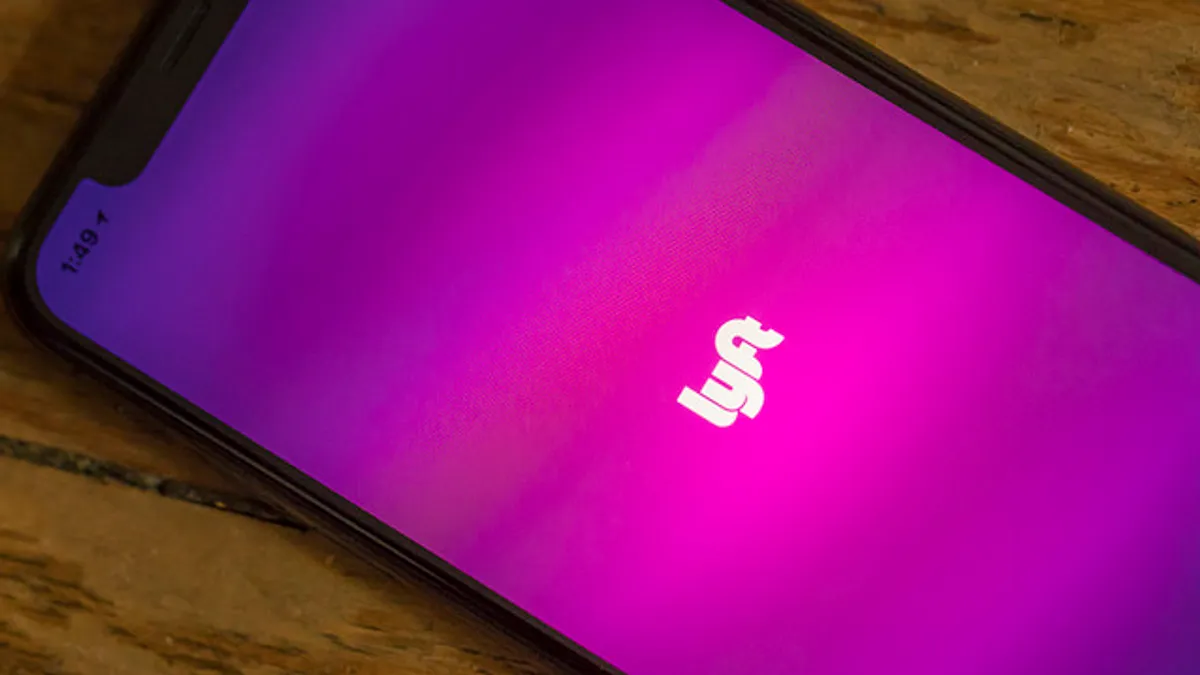Brief:
- Lyft filed two patent applications that suggest the ride-hailing company is working on providing augmented and virtual reality (AR/VR) experiences for passengers, TechCrunch reported. One patent, filed in July 2017, describes a "virtual reality transportation experience" that would respond to real-world surroundings and incidents like sudden stops and turns as people ride to their destination.
- The VR experience would provide passengers with headsets to immerse themselves in a computer-generated environment that could offer games and entertainment. Those VR experiences could be shared with people in other cars or those waiting for a pickup.
- Another patent filing detailed how AR, the technology that overlays digital images on a real background through a mobile device, could provide information to passengers in order to expedite the pickup and drop-off process based on traffic patterns and location. Lyft would use AR overlays to show customers information including ideal pickup locations based on the passenger's immediate surroundings.
Insight:
Lyft's patent filings from 18 months ago indicate that the ride-hailing company has thought ahead about how AR/VR technologies could one day become key parts of the transportation services provided to passengers. The patents are likely tied to Lyft's acquisition of AR startup Blue Vision Labs last year. One service Blue Vision offers is collaborative AR tech to let people in close proximity view the same virtual content.
As the price of AR/VR headsets declines and software developers create more interactive experiences for the platforms, ride-hailing companies like Lyft will likely be in a better position to add such services to vehicles. Those services eventually may include features like interactive shopping and streaming media, as the technology evolves and consumers grow increasingly accustomed to virtual media. Last week at the Consumer Electronics Show (CES), Carmaker Audi showed off a prototype VR entertainment system for cars that would let passengers play a video game that responds to the car's actual movements.
Lyft and fierce rival Uber continue to battle for market share in the quickly expanding ride-hailing industry, driving the companies to seek fresh ways to boost loyalty among passengers. Both companies last year introduced loyalty programs that provide incentives for repeat usage. Uber's program lets passengers earn points to exchange for rides and food orders from its Uber Eats delivery service, while Lyft plans to offer points to redeem for trip upgrades or access to more experienced drivers. Lyft's latest patent applications suggest that innovative technology is a key part to its strategy to boost loyalty.
However, AR adoption by consumers hasn't grown as fast as many had anticipated, leading to recent bankruptcy filings, asset sales and layoffs among developers of the technology. AR headset developer Meta this week sold its assets to an undisclosed buyer after earlier attempts to drum up financing fell through, Variety reported. Blippar last month announced it had entered administration, a U.K. form of bankruptcy, as part of being liquidated after an investor dispute. While tech company Magic Leap last year released an AR headset after years of development, it mostly received lackluster reviews from the tech press.












